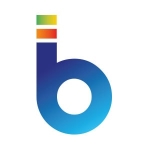
Architect at a tech vendor with 501-1,000 employees
Exalytics and OBIEE, size does matter
What is most valuable?
Exalytics combined with Exadata server makes it possible to query ~ 50TB of datamart data (uncompressed size), that's really great and ~ 1000 of simultaneous requests.
How has it helped my organization?
In the past it was not possible to join data from so many different sources due to the performance limitations imposed by the size of the data
What needs improvement?
Self service BI. It's clear that Endeca tends to be integrated into BIFS and probably self-service functionality will be covered by Endeca.
For how long have I used the solution?
3 years
Buyer's Guide
Oracle OBIEE
December 2025
Learn what your peers think about Oracle OBIEE. Get advice and tips from experienced pros sharing their opinions. Updated: December 2025.
879,768 professionals have used our research since 2012.
What was my experience with deployment of the solution?
Sometime copy-paste of report metadata is quite complicated.
What do I think about the stability of the solution?
No
What do I think about the scalability of the solution?
No, scalability is a big positive for the product.
How are customer service and support?
We didn't get into contact with support. From previous projects I have very various experience with Oracle support. It happened to me to get very helpful solutions almost immediately, in other cases, we were just ping-ponging emails, but no breakthrough.
Which solution did I use previously and why did I switch?
No
How was the initial setup?
The initial setup was pretty complex due to the fact that very complicated aggregation rules were defined, but I think this would have even more complicated to be implemented with other BI tools.
What about the implementation team?
I was part of a vendor team.
What's my experience with pricing, setup cost, and licensing?
N/A
Which other solutions did I evaluate?
We are not involved in this phase.
What other advice do I have?
Oracle BI combined with Exadata/Exalytics is a perfect tool for ROLAP/HOLAP type reports especially for extreme data sizes. I don't know any other tool suitable for that.
Disclosure: My company does not have a business relationship with this vendor other than being a customer.
BI Expert at a tech services company with 10,001+ employees
Dashboard capability and enterprise level security are valuable but end users can't change their password on their own.
Valuable Features
Dashboard capability along with tightly integrated enterprise level security are really the most used features for me in OBIEE. It's also capable of delivering Scorecarding, Geo Mapping & multi source capabilities.
Room for Improvement
End users can't change their password on their own.
Use of Solution
5+ years
Customer Service and Technical Support
Oracle support has always been quick.
Initial Setup
Initial setup is straightforward through a wizard based interface.
Other Advice
OBIEE is a truly enterprise level product with the capability to scale & tight security. But it requires a specialized technical team during customization which might make it not economical for small scale customers.
Disclosure: My company does not have a business relationship with this vendor other than being a customer.
Buyer's Guide
Oracle OBIEE
December 2025
Learn what your peers think about Oracle OBIEE. Get advice and tips from experienced pros sharing their opinions. Updated: December 2025.
879,768 professionals have used our research since 2012.
BI Expert at a media company with 5,001-10,000 employees
We got up pretty quickly, and are supporting a relatively self-service model.
We implemented OBIEE using the OBIA apps for Financials & Procurement. We got up pretty quickly, and are supporting a relatively self-service model with superusers in each team. Some superusers pick up data definitions better than others. Starting users with their monthly/qtrly reporting packages seems to encourage adoption.
Disclosure: My company does not have a business relationship with this vendor other than being a customer.
Director of Statistics and Analysis at a tech company with 1,001-5,000 employees
Powerful platform for summarizing data within a DW environment
Company Background:
• Verisign, Inc. operates the domain name registry for .COM, .NET and other Top Level Domain extensions
• There are more than 125 Million registered .COM and .NET domain names
• These domains are in various states, such as:
newly registered, expiring, renewed, or deleted
Department Background:
• The Business Intelligence group is responsible for reporting, modeling, forecasting, and creating a coherent narrative about the 'health' of the domain registry.
• Our group acts as an information 'hub-and-spoke' for many internal customers such as, Marketing, Finance, Product Management, Account Management, and the Executive suite
Data Background:
• The primary source of data comes from Oracle Business Intelligence (OBIEE)
• Oracle 11g running on Linux
• Oracle has always been a principle database in the infrastructure
• Engineering builds some automated reports for external customers with BI Publisher
• Our Business Intelligence Group used to work with Oracle Discover, then OBIEE (v10), and currently migrating to OBIEE (v11)
Process Challenges:
• Company has never provided an opportunity to choose a different BI tool
OBIEE is the legacy company standard
• Currently migrating from OBIEE (v10) to latest version (v11)
• Along with a new data architecture:
Writing user quick guides
Arranging training for business users
Building dashboards from scratch
Recreating Automated Reports (Agents)
Process Advantages:
• After using OBIEE (v10) for three years, there were hundreds of reports in the folder structure
Some were useful, some weren't
• The migration forced us to start from a clean slate because over the past few years we have better idea about what is important to our customers
OBIEE Pro's:
• Interface is improved from earlier (v10) version
Better organization of windows showing the compound layout, views, and subject areas
Easier to configure pivot tables
There is a split screen where you can arrange the columns and rows and view the pivot table results
• Improved ‘Agent’ capabilities
"Agents" is the new term that replaces "iBot”
With v11, possible to subscribe other people to an automated agent
This is better than having to work with Executives and walk them through the process
• Latest version of OBIEE contains functions to obtain values from prior time periods
Makes comparative reports much easier to create
OBIEE Con's:
• OBIEE interface times out for long queries that involve extensive drill-down
The analysis we perform is not limited to rote, summarization of transactional data
Easier to identify the event in the OBIEE reports then submit a SQL query to the database to pull the transactional detail
• OBIEE Excel 2007 download
Selecting the ‘Excel’ download option still only returns 65K rows
• Formatting is time consuming task
Dozens and dozens of ‘clicks’ required to polish a dashboard
When formatting a pivot table, there isn't an obvious way to change the 'fill' color in the upper left box that sits adjacent
to the row labels and the first column
Other Challenges:
• Working with Unstructured Data
Creating segmentations on-the-fly not practically possible
Temporary tables cannot be inserted into the production environment
Exploring Oracle APEX as a solution
Have to download to Excel and then summarize against a lookup
Analysis often merges non-Oracle data with results from OIBEE reports
• Analytics
Our forecasting code doesn’t run in production
Isn’t available within the OBIEE interface
Resulting datasets downloaded into Access for aggregation
OBIEE has some time series functions but very difficult to perform rigorous validations and monitor accuracy without having to customize the XML and PL/SQL options on the ‘advanced tab’ of the query design window
• Dates
We’ve encountered some issues with dates that we did not have with OBIEE v10
The “Month-Year” date format in OBIEE downloads into Excel as a ‘text’ value instead of an Excel Date value with a “MON-YEAR” format
Conclusion: Oracle Business Intelligence is a powerful platform for summarizing data within a DW environment. Despite OBIEE’s interface and feature improvements, its usability remains clumsy with complex queries requiring skilled coders.
Disclosure: My company does not have a business relationship with this vendor other than being a customer.
Consultant with 51-200 employees
Essbase and EPM Integration Improvements in OBIEE 11.1.1.7
One of the major new feature areas in OBIEE 11.1.1.7, but which has so far got very little attention, is the significant improvement in integration between Essbase, the Hyperion EPM Suite, and OBIEE 11g. The integration between EPM Workspace and OBIEE’s Presentation Services which disappeared when 11g came along is now back, along with installation and security integration, a new version of SmartView that (properly) supports OBIEE as a data source, and the ability to spin-off aggregates from the RPD into Essbase ASO cubes.
Now some of these features of course made an appearance in the earlier, 11.1.1.6.2 BP1 release, and integration between OBIEE 11g and EPM Suite has been happening on-and-off right back from the OBIEE 10g days, but where we’re at now with OBIEE 11.1.1.7 is the delivery of a number of things that customers have long been asking for, including:
- The ability to run OBIEE from within EPM Workspace, with single sign-on between the two
- Shared security provisioning and organisation between Essbase and OBIEE, through application roles and policies
- The ability to install Essbase and the other EPM tools into the same WebLogic domain as OBIEE, using a single installer
- A proper Excel (and Word, Powerpoint, Outlook) add-in for OBIEE, with the ability to author reports as well as run existing Answers-authored ones
This is actually one of a number of new feature areas that came with 11.1.1.7 that have had little publicity; as well as better Essbase integration, there’s actually now support for multi-tenancy in the RPD and catalog, Hadoop integration (which we covered in a blog post last week), the View Suggestion Engine, the inevitable changes to MUD, and quite a few others, some of which I’ll try and cover in the next few days and weeks, but for now let’s look at these new Essbase/EPM integration improvements, starting with installation of Essbase and its related tools into the OBIEE WebLogic domain.
As I mentioned back in my OBIEE 11.1.1.7 New Features posting a few weeks ago, the OBIEE product installer now offers Essbase as an installation option alongside OBIEE, Real-Time Decisions (RTD) and BI Publisher. As with RTD, Essbase isn’t included in the base OBIEE+ license, but it is included in Oracle BI Foundation Suite, the product package that Oracle encourage new customers to take out an includes OBIEE, Scorecard & Strategy Management, Essbase and BI Mobile. Selecting Essbase during the install process installs it, and the other EPM Suite tools, in the same WebLogic domain as OBIEE, and you can see Essbase within Fusion Middleware Control as a product – separate from OBIEE – that you can manage and monitor.

Essbase Server, and Essbase Studio (the client/server tool used to design and build Essbase cubes) are also now controlled and monitored through OPMN, something that’s been a feature of EPM Suite for several releases now but which is, of course, new for OBIEE.
[oracle@obiee11117 ~]$ cd /home/oracle/obiee/instances/instance1/bin
[oracle@obiee11117 bin]$ ./opmnctl status
Processes in Instance: instance1
---------------------------------+--------------------+---------+---------
ias-component | process-type | pid | status
---------------------------------+--------------------+---------+---------
essbasestudio1 | EssbaseStudio | 12682 | Alive
essbaseserver1 | Essbase | 12685 | Alive
coreapplication_obiccs1 | OracleBIClusterCo~ | 12686 | Alive
coreapplication_obisch1 | OracleBIScheduler~ | 12687 | Alive
coreapplication_obijh1 | OracleBIJavaHostC~ | 12683 | Alive
coreapplication_obips1 | OracleBIPresentat~ | 12684 | Alive
coreapplication_obis1 | OracleBIServerCom~ | 12689 | Alive
[oracle@obiee11117 bin]$
So something that’s been an issue for EPM customers upgrading from OBIEE 10g to 11g was the removal, at the time, of the ability to integrate OBIEE’s Presentation Services within EPM Workspace, and the SSO link between the two products. Back with OBIEE 10.1.3.4 there was an admittedly complicated but supported and working process to integrate the two products together, allowing EPM Workspace customers to “skin” OBIEE to look like Workspace and run the two products together, albeit with separate report catalogs, security models and so forth.

This, coupled with the removal of OBIEE’s Hyperion custom authenticator for the RPD left many EPM Suite customers upgrading to OBIEE 11g in the lurch, leading to workarounds such as this one that we put together recently for one of our customers. Well this integration (mostly…) is back with OBIEE 11.1.1.7, so let’s see what it does, and what functionality is still missing compared to OBIEE 10g.
First off, Essbase and EPM Suite as installed as part of an OBIEE installation isn’t quite the same as EPM Suite installed standalone; most importantly, Essbase in this OBIEE incarnation has a different security model than “standalone” EPM Suite, in that it uses the same system of application roles and policies that the Fusion Middleware 11g-centric OBIEE 11g does, rather than the Shared Services and groups that standalone EPM Suite does. Also, the OBIEE 11.1.1.7 install installs just the following EPM Suite products:
- Essbase Server, including Essbase Agent, Essbase Studio, Essbase Administration Services, Provider Services
- Financial Reporting
- Calculation Manager

Now, when installed as part of OBIEE 11.1.1.7′s WebLogic domain, EPM Workspace is available at http://[machine_name:port]/workspace, and when you launch it you’re presented with a view into the BI Catalog, and menu options to administer the various EPM and BI tools from one place.
 Within this catalog are both OBIEE objects such as analyses, dashboards and agents, and EPM objects such as Financial Reporting and SmartView reports.
Within this catalog are both OBIEE objects such as analyses, dashboards and agents, and EPM objects such as Financial Reporting and SmartView reports.

There are limits to this EPM/BI Catalog integration though – FR reports, for example, can only be opened using the File > Open dialog in EPM Workspace, with an error message showing if you just click on the report itself in the BI Catalog view within EPM Workspace. But SSO between Workspace and OBIEE seems to work (as in, you don’t need to re-enter your BI password when clicking on an analysis in the Workspace Catalog view) as both OBIEE and EPM are working off of the same Fusion Middleware security model, which (the lack of) explains why the feature disappeared for so long after OBIEE 11g was introduced.
Now that OBIEE and Essbase share the same security, the need for the old HSS Custom Authenticator has now gone away, though of course this will only be of use if a customer has moved their Essbase installation into the OBIEE domain, with standalone EPM Suite installations still needing the security workaround mentioned earlier in this article. There’s no upgrade path from standalone EPM Suite installations to this integrated arrangement, so most probably any users of Essbase within this new 11.1.1.7 context will be installing it “net-new”, with the main objective being to enhance their existing BI setup rather than merging their separate BI and EPM platforms into one.
As you’ve probably picked-up by now, much of this new integration ability is down to security harmonised across both Essbase and OBIEE, or more accurately Essbase now having an option to use Fusion Middleware 11g security rather than Hyperion Shared Services. So what does Essbase and FMW11g security look like in practice? Let’s head over to Fusion Middleware Control, in particular the Application Policies administration screen, to take a look.

The big difference when Essbase runs as part of an Oracle BI domain is that authentication, and authorization for Essbase use Fusion MIddleware security rather than Shared Services or Native Essbase security. Although Essbase Administration Services ships with OBIEE 11.1.1.7, you should use Fusion Middleware Control to enable access to particular Essbase databases, and give permission to access tools such as Financial Reporting or Administration Services; the only security role for EAS and MaxL in this setup is to create the Essbase data and metadata filters; these filters are then assigned to users through FMW security resource permissions and application policies, which then are then granted to application roles and thereby to users.
Whilst this probably seems like an over-complicated nightmare to traditional Essbase users, it does have the major advantage that one set of application roles granted to users within a Fusion Middleware system can cover both OBIEE and Essbase permissions, and there’s no need to link to Shared Services or support Native Essbase security. We’ll cover the implications of this more in some future blog posts, but this is the enabling technology that makes the rest of this integration make sense.
With Essbase integrated into the OBIEE BI Domain, you can also now use Essbase as an aggregate persistence target, though this feature comes with the same (slightly strange) approach and limitations that we first encountered when it was first introduced with OBIEE 11.1.1.6.2 BP1; although there’s not the same requirement for the Essbase server only to be used for aggregate persistence, you still have to name the Essbase database in a particular way, it’s ASO-only, and the Aggregate Persistence Wizard still creates a separate ASO database for each aggregation (similar to Oracle Database materialised views) rather than one single cube covering all aggregations. In practical terms – I’m not sure how much you’d use this vs. creating your own Essbase cube in Studio against the whole RPD business area – but it might be useful for OBIEE developers who otherwise don’t know Essbase.
So finally, the other major Essbase-related new feature in OBIEE 11.1.1.7 is SmartView, the successor to Oracle BI Office. But that’s a topic in itself, so I’ll cover that this in the next posting.
Disclosure: My company is an Oracle Gold Partner
Disclosure: My company does not have a business relationship with this vendor other than being a customer.
Thanks Mark for a nice coverage. It 's great as usual to see posts from you on OBIEE and I have also followed those couple of times. OBIEE 7 has some of good things which I will from previous release (s):-
For last release the rich catalog of samples were missing which they has ensured with new release and help users to adapt and migrate quickly.
Essbase and some of the optimizations is yet to be tried but looks like lot of improvisations over last release.
We were waiting for endeca integration and support which is also included officially with new release and now Oracle ATG people have all support on endeca side for pulling commerce statistics to OBIEE reporting views.
Thanks again for highlighting some of key areas and a nice summary on new release.
VP Product at a tech company with 51-200 employees
Gartner's Magic Quadrant report says that OBIEE lacks good customer support. Have you found this to be the case?
Based on Gartner's Magic Quadrant, Oracle's customer support, product quality and sales experience are chronic weaknesses of OBIEE. However, customers choose OBIEE due to its integration with other Oracle products.
Are you a Real User of OBIEE? Have you found this to be the case in your organization?
If you are a user or are evaluating OBIEE, add your comment below or write your own review. Share your opinion with our community!
Disclosure: My company does not have a business relationship with this vendor other than being a customer.
We are recent implementers of both OBIEE and the OBIA SIA (Student Information Analytics) offering. TO answer your questions regarding product quality and customer support I reply with a resounding YES. The already 4 month past deadline project has hit bugs (both existing and confirmed) at every step of the way; the integration and ease of use even when utilizing only Oracle's own BI platform is abysmal (click on a link in BIACM to FSM, time to reenter your password, want to set up a new developer in ODI or switch target environments, time to start generating wallets and manually configuring XML files). Even with direct access to the SIA development team (all of which is located in a timezone that prevents us from having enough overlap to actually communicate effectively during normal hours) the bugs and issues we've encountered do not see timely resolution and the 'fixes' eventually offered are nothing more that incredibly hack workarounds.
Head of Engineering at a tech services company with 51-200 employees
We used OBI EE for generating OOTB reports...
We used OBI EE for generating OOTB reports and then for preparing few custom dashbaords for our clients as part of project.
The product in terms of installation is simple but heavy and takes some time to generate your first report but when one ic comfortable can play easily with platform and this saves time. We have more than 250+ samples available on reporting, drill downs and graphical interactions which help you to prepare concise reports in one report. The ESSBASE query engine makes it possible to pass complex BI queries to engine in real time and responsive also. Overall nice platform which focuses on web and mobile analytics as well.
Disclosure: My company does not have a business relationship with this vendor other than being a customer.
You can write whatever you want. You can create an ad-hoc report as a result of a logical SQl, or even from a SQL directly sent to the underlying database.
Head of Engineering at a tech services company with 51-200 employees
Comprehensive BI tools, but lacks support for deploying multiple RPD on one BI server, direct access to RPD schema or model layers.
Valuable Features:
Oracle Business EE has a futuristic vision for BI Server capabilities with support for answers, flexible dynamic dashboard, intelligent untime query engine, web and mobile analytics and support for structured and unstructured data. OBIEE provides out of the box supports for Oracle ATG commerce catalogs and also have sample applications which enable users to come up with nice dashboards in relatively lesser time frames.
Room for Improvement:
However, OBIEE lacks support for deploying multiple RPD on one BI server, direct access to RPD schema or model layers. Also the overall solution is heavier relative to other products.
Disclosure: My company does not have a business relationship with this vendor other than being a customer.
Buyer's Guide
Download our free Oracle OBIEE Report and get advice and tips from experienced pros
sharing their opinions.
Updated: December 2025
Popular Comparisons
Microsoft Power BI
Tableau Enterprise
IBM Cognos
Amazon QuickSight
SAP Analytics Cloud
SAP BusinessObjects Business Intelligence Platform
MicroStrategy
Oracle Analytics Cloud
QlikView
TIBCO Spotfire
Sisense
Looker Studio
Salesforce Einstein Analytics
Buyer's Guide
Download our free Oracle OBIEE Report and get advice and tips from experienced pros
sharing their opinions.
Quick Links
Learn More: Questions:
- What is your experience integrating Oracle BI Mobile HD, Oracle Security Tool Kit with your own security solution?
- What are the key advantages of OBIEE compared to Microsoft BI?
- What Is The Biggest Difference Between Microsoft BI and Oracle OBIEE?
- What is the difference between Oracle Analytics Cloud and Oracle OBIEE?
- What is the difference between Oracle Analytics Server and Oracle OBIEE?
- How does Oracle OBIEE compare with Microsoft BI?
- Which is the better solution and why - Oracle OBIEE or TIBCO Spotfire?
- Which Oracle product is better - OBIEE or Analytics Cloud?
- What is the alternative logical key for Amazon QuickSight if I switch from Oracle OBIEE?
- When evaluating Business Intelligence Tools, what aspect do you think is the most important to look for?
















I agree on some of your points, I have been around BOBJ and OBIEE and both have their strong points. My wish list for OBIEE is to make it easier to have multiple deployments on the same server, this just seems like a no brainer to me or allow for more cohesive code management system. I know they are working to improve points, but I would like to see them make it easier for muti-user development and such, because at the enterprise level change control and management become very, very large issues and adding significant headcount is not the answer today.